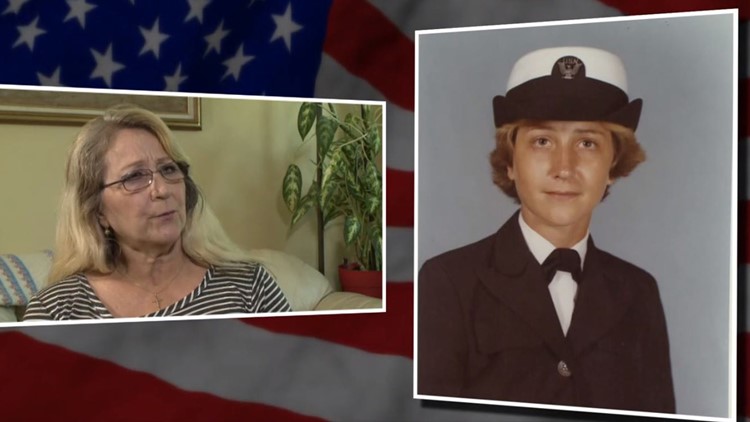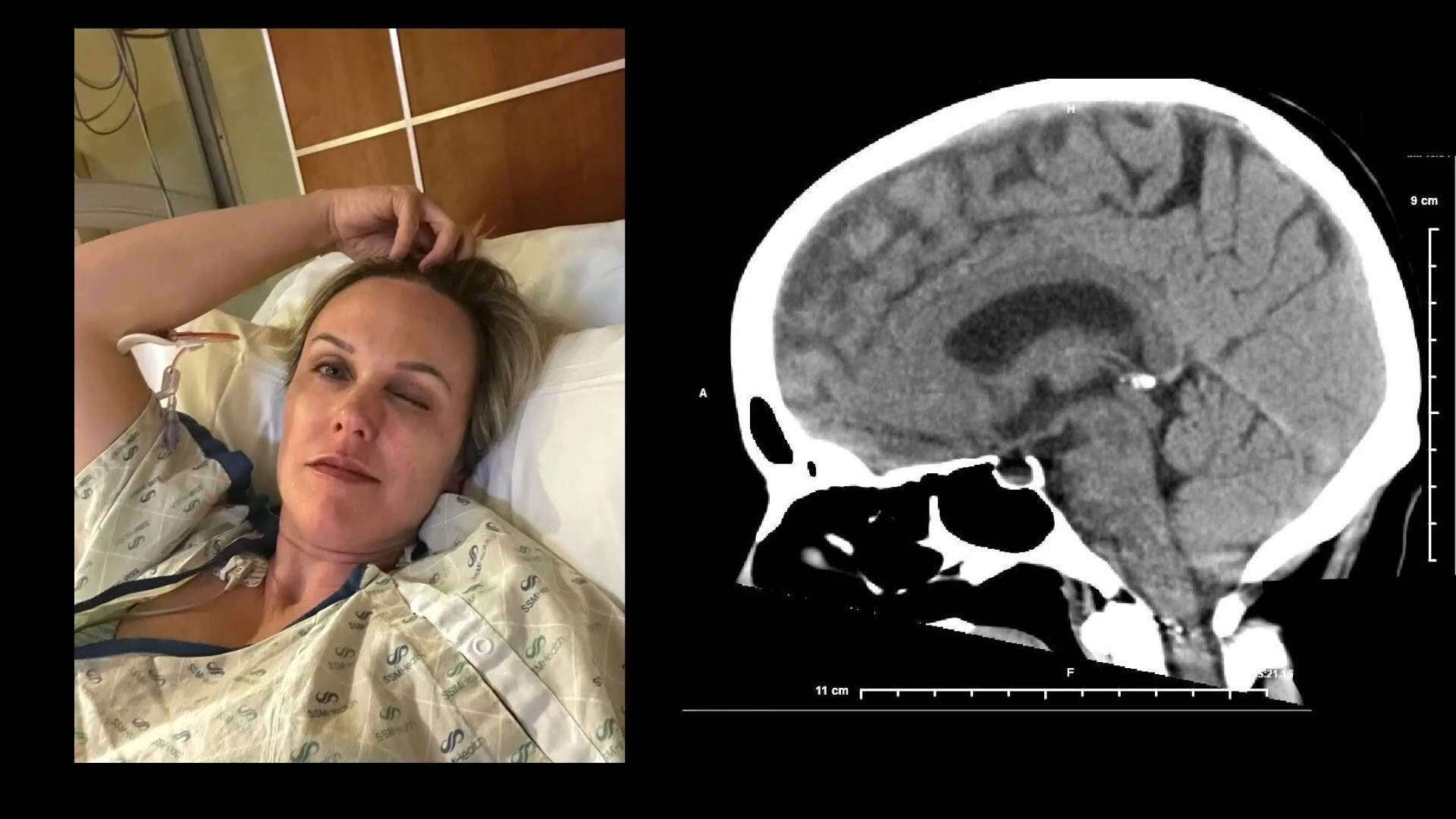ST. LOUIS – Like an unwanted guest, it's always there. The pain.
"I have degeneration," explained Marcy Richason. "They had to rebuild my spine."
Also always there. The bills.
"It's in excess of $6,000 or $7,000," Richason said.
But the 58-year-old is a veteran. She served our country as a Navy hospital corpsman.
"When I was a child we said the Pledge of Allegiance," she said. "But we said it but without a lot of meaning. But when you're swearing in, in front of the flag, there's a lot of meaning behind each word."
And so she expected her emergency room bills for her back and her clinical depression to be covered by the VA.
David Riggs is also a veteran. And when he got a bill for emergency room care, he didn't worry.
It's a federal law. Veterans who get their medical care from the VA, can go to an outside hospital in an emergency and the VA is supposed to pay the portion for which the veteran is personally liable.
But both Marcy and David had their claims denied. Mary was told she didn't get pre-approval. As for David...
"I'm being penalized for being healthy and not having to use the doctor very often," Riggs said.
It turns out Veterans can even be denied if they don't see a VA doctor on a regular basis.
"They denied my claim because I hadn't seen one of their doctors in the last 24 months," Riggs said.
It's a rule covered under a law called the Millennium Act passed in 1999 — after Riggs left the Army.
If Marcy and David aren't familiar with all the VA rules, 5 On Your Side has learned they aren't alone.
According to a 2014 Government Accountability Office report, "most veterans" are "often not aware of specific eligibility criteria and assume that VA will cover their non-VA emergency care."
"Veterans are confused and even claims people are confused," Randy Williamson said.
Williamson is one of the authors of the GAO report. He even testified before Congress about the problem.
That Congressional testimony was three years ago, so it might surprise you just how many veterans have been denied claims since then.
In our local service network alone which includes Missouri and Southern Illinois, the VA refused to pay the ER Bills of more than 7,000 veterans. Totaling $23 million.
"There should be no veteran stuck with an emergency room bill," Sen. Claire McCaskill, a Democrat from Missouri, said.
Congress has been looking into the issue of VA denials.
McCaskill told 5 On Your Side that there is often some confusion at the VA about their responsibilities.
"My advice to them is call us," McCaskill said. "We're happy to go to bat for them. We're happy to battle the bureaucracy and see if we can't be successful, which we are many times."
Still, veterans like David Riggs and Marcy Richason want to know why it's so difficult.
"Listen to your veterans," said Richason.
She says she's so fed up with the VA system that she won't use it for medical care anymore.
The VA would not go on camera but here is their written response to our questions-
- Has the VA made any changes to its policies or procedures raised in this GAO report?
VA did not make any changes to existing policy as a result of the report as many of the findings were related to previously established procedures used to process claims.
Since the time frame that the report covers, VA has published an Interim Final Rule in the Federal Register on January 9, 2018 that allows VA to act as a secondary payer when a Veteran has remaining personal liability for an episode of emergency care outside of their copay, deductible, or coinsurance responsibility.
In response to the findings, VA updated and revised training and reference information available for field staff use during the claim adjudication process. The main components of this effort focused on the development of new, comprehensive staff training modules, a complete redesign of desktop operating procedures, and publication of a public facing website available to Veterans regarding the benefits available in the event of a medical emergency.
- Specifically, has the VA made any changes to ensure that the standards of eligibility are applied consistently and fairly?
VA has worked across it’s organization to ensure that employees are trained on all aspects of claims processing and that training material remains up to date and standards of eligibility are applied consistently and fairly. To reinforce what employees learn in training, each employee has access to a comprehensive suite of internal desktop operating procedures that specifically address specialized procedural components of claim adjudication and processing.
- Has the VA made any changes to better inform or educate veterans about the emergency benefits available and the procedures for submitting a non-VA ER bill or appealing an ER bill claim denial.
VA recently revised and expanded informational resources available to Veterans on the topic of emergency medical care and emergency transportation (ambulance) received from a community provider. The resources describe when a Veteran should seek emergency medical care and explain when and how VA can pay for a Veteran's service-connected and non-service connected emergency medical care received from a community provider, including how to submit a claim. The materials, including a general overview video, are located at the following web address: https://www.va.gov/COMMUNITYCARE/programs/veterans/Emergency_Care.asp
- Out of all the non-VA ER bills submitted to the VA and denied, what percentage result in appeals? What are the outcomes of the appeals?
We do not track those statistics.
- How would you describe the steps to processing a non-VA ER bill claim, starting from when the veteran submits the bill to the VA?
VA has a fact sheet covering the steps for processing a claim for non-VA ER services. The fact sheet can be found here:
- How would you describe the steps in an appeal to a denied non-VA ER bill?
The process to appeal the denial of a non-VA ER bill is governed by VHA Directive 1032 ‘Health Benefits Appeals Processing’.



